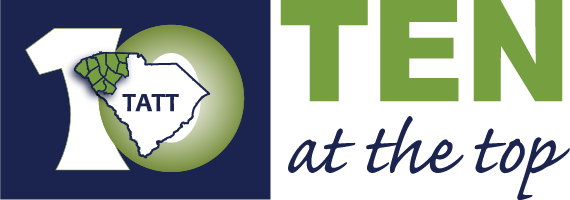
Jordana Megonigal, Founder of The RECON Network
Across the state of South Carolina, there are almost a half million veterans—although there are likely far more who go uncounted by the VA. While we in the Upstate may feel somewhat removed from this community due to the fact that we don’t have a large active military base locally, the reality is that the military community in South Carolina generates one out of every 12 jobs in the state, and with a statewide economic impact of more than $25 billion each year ($2.2 Billion of that in the Upstate alone), has proven vital to our economic well-being across the state.
With this information, there is a high focus on employing veterans as part of an elite workforce—especially in South Carolina, where manufacturing, logistics and cyber security are significant boons to our local economy. However, the realities facing those making that transition from active military to veteran status can be hard. It’s about far more than simply “finding a job,” as this transition isn’t simply a career change; in many cases the servicemember is also navigating changes in family, location, career, and housing—all at the same time. And that’s not even mentioning the emotional and mental shifts that accompany transition, as well.
 To add to the challenges, when it comes to veteran hiring after transition, there are systemic gaps between expectation and reality—for both veterans and hiring companies. Veterans—many who have been told that “everyone hires vets”, oftentimes exit the military with rose-colored glasses, expecting job offers to fall into their laps, only to be disappointed when the job-finding path takes months, or even years. When they do find one, their lack of civilian expertise slots them into entry-level positions, virtually ignoring their years of experience—most of which is translatable to a civilian position if someone in HR only knows how to look at it.
To add to the challenges, when it comes to veteran hiring after transition, there are systemic gaps between expectation and reality—for both veterans and hiring companies. Veterans—many who have been told that “everyone hires vets”, oftentimes exit the military with rose-colored glasses, expecting job offers to fall into their laps, only to be disappointed when the job-finding path takes months, or even years. When they do find one, their lack of civilian expertise slots them into entry-level positions, virtually ignoring their years of experience—most of which is translatable to a civilian position if someone in HR only knows how to look at it.
On the other side, companies also face challenges—different cultures and different vocabularies make qualifying candidates complicated. In order to successfully hire veterans, HR professionals must spend extra time translating experience or understanding military culture and rank hierarchy in order to balance the job opportunity on behalf of the veteran applicant. The alternative is to keep doing “business as usual,” where more often than not a veteran’s resume won’t make it into the pile of resumes in an already overloaded hiring department.
But these are only a few examples; from finding to hiring and retaining veterans in the workforce, there are real challenges that can only be rectified when both entities are working toward common ground.
 At The RECON Network, which started humbly in Greenville in 2015 and has grown into a nationally-focused organization serving veterans and military spouses across the U.S., we believe that starting these conversations is just as important as addressing the “human element” of transition—that of purpose, well-being, motivation and meaning. That’s why in 2019 we partnered with SC SHRM to begin the first Veteran Employment and Transition (VET) Summit, funded in part by a grant from the SHRM Foundation. In 2020, with the cancellation of live events due to COVID-19, the VET Summit is set to be a much larger, two-day virtual event, providing valuable information that can help us come together for the benefit of veterans seeking employment.
At The RECON Network, which started humbly in Greenville in 2015 and has grown into a nationally-focused organization serving veterans and military spouses across the U.S., we believe that starting these conversations is just as important as addressing the “human element” of transition—that of purpose, well-being, motivation and meaning. That’s why in 2019 we partnered with SC SHRM to begin the first Veteran Employment and Transition (VET) Summit, funded in part by a grant from the SHRM Foundation. In 2020, with the cancellation of live events due to COVID-19, the VET Summit is set to be a much larger, two-day virtual event, providing valuable information that can help us come together for the benefit of veterans seeking employment.
With three tracks—one for transitioning service members and veterans, another for military spouses, and a third focused on hiring companies, the VET Summit is designed to educate and provide real-life resources for each of these entities, with the overall goal of getting our military and veteran communities back into the workforce. Hiring companies will learn more about translating skills, hiring military spouses, and Workforce Opportunity Tax Credits (which offer real financial incentives for hiring veterans). Veterans and military spouses will focus on various tools and resources designed to help them stand out in a job search, find a meaningful career path, and what a post-COVID workforce looks like.
 Even with all the resources available, we have room to grow. With 55 percent of veterans listing finding a job as their top transition challenge (The Institute for Veterans and Military Families), and with 44 percent leaving their first job post-military within the first year (Hiring our Heroes), there is still much to do. The VET Summit—and events like it—are the types of events we need to reduce gaps in veteran hiring and ensure that those who served our country, can continue on in a career within a robust workforce. I hope to see you there this November.
Even with all the resources available, we have room to grow. With 55 percent of veterans listing finding a job as their top transition challenge (The Institute for Veterans and Military Families), and with 44 percent leaving their first job post-military within the first year (Hiring our Heroes), there is still much to do. The VET Summit—and events like it—are the types of events we need to reduce gaps in veteran hiring and ensure that those who served our country, can continue on in a career within a robust workforce. I hope to see you there this November.
Jordana Megonigal is a writer, business owner, and founder of The RECON Network, which is focused on purpose-based transition and career planning resources for veterans and military spouses, including The VET Summit. She is based out of Moore, South Carolina.
DETAILS:
2020 VET Summit
November 19-20, 2020
VIRTUAL
Registration: Free for veterans, transitioning servicemembers, and military spouses; $35 for hiring companies (CEOs, HR professionals, staffing agencies, etc.)
